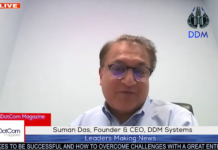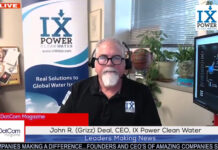Private equity fund structures represent the framework through which private equity firms raise capital from various investors and deploy it into potentially lucrative investment opportunities. The intricate nature of these fund structures serves to facilitate the efficient management of funds, the alignment of interests between general partners and limited partners, and the implementation of robust investment strategies. Understanding the nuances of private equity fund structures is crucial for investors, as it can provide insights into the ways in which these funds operate, the associated risks and returns, and the mechanisms employed to generate value over the investment horizon. Private equity fund structures are designed to offer a balance between capital deployment, risk management, and investor expectations, with the ultimate goal of generating attractive returns on investment within a specified timeframe.
The core components of a private equity fund structure typically include the general partner (GP), the limited partner (LP), the management company, the fund’s investment strategy, and the fund’s investment portfolio. The general partner, often the private equity firm itself, is responsible for managing the fund’s investments, making strategic decisions, and executing the investment strategy in line with the fund’s objectives. The general partner also contributes a certain percentage of the total capital raised, demonstrating its commitment to the fund and aligning its interests with those of the limited partners. The limited partners, on the other hand, are the investors who provide the majority of the capital for the fund and have limited liability, meaning their financial exposure is limited to the capital they have invested in the fund.
Private equity fund structures are typically established as limited partnerships, where the general partner assumes the role of the managing entity and the limited partners act as passive investors. The limited partnership structure is governed by a partnership agreement that outlines the terms and conditions of the partnership, including the roles and responsibilities of the general and limited partners, the fund’s investment strategy, the distribution of profits, and the duration of the partnership. The partnership agreement also specifies the fund’s investment focus, whether it is on venture capital, growth equity, leveraged buyouts, or other investment strategies, providing a clear roadmap for the fund’s investment activities and guiding the decision-making process throughout the investment lifecycle.
Within the private equity fund structure, the management company plays a crucial role in supporting the fund’s operations and ensuring the effective execution of the fund’s investment strategy. The management company is responsible for overseeing the day-to-day activities of the fund, including sourcing potential investment opportunities, conducting due diligence, executing transactions, and managing the portfolio companies post-acquisition. The management company is often composed of a team of investment professionals with diverse expertise in various industries, enabling the fund to leverage a broad range of skills and knowledge to identify and capitalize on attractive investment prospects. The management company works closely with the general partner to implement the fund’s investment strategy and drive value creation within the portfolio companies, aiming to deliver strong returns for the fund’s investors.
Furthermore, the fund’s investment strategy is a critical element of the private equity fund structure, as it guides the fund’s investment decisions and shapes the composition of the investment portfolio. The investment strategy is formulated based on the fund’s objectives, risk appetite, and market opportunities, taking into account various factors such as industry trends, market dynamics, and the competitive landscape. Depending on the fund’s focus, the investment strategy may emphasize different types of investments, including early-stage ventures, mature companies, distressed assets, or undervalued businesses, with the aim of generating attractive returns for the fund’s investors over the investment horizon. The investment strategy is continuously evaluated and adjusted to adapt to changing market conditions and to capitalize on emerging opportunities, ensuring that the fund remains agile and responsive to evolving market trends and investment dynamics.
The private equity fund structure also encompasses the fund’s investment portfolio, which comprises the various companies in which the fund has made investments. The investment portfolio is carefully curated based on the fund’s investment strategy, with each investment serving a specific purpose within the overall portfolio construction. The fund’s investment portfolio is diversified to mitigate risks and maximize returns, with investments spread across different industries, geographies, and stages of development. The portfolio companies are actively managed and monitored by the fund’s management team, with a focus on implementing value-creation initiatives, driving operational improvements, and enhancing the overall performance of the companies to maximize their potential and generate favorable returns for the fund’s investors.
In addition to the fundamental components of the private equity fund structure, certain key considerations play a crucial role in shaping the overall dynamics and operations of the fund. These considerations include the fund’s capital deployment strategy, the fund’s fee structure, the fund’s exit strategy, and the fund’s regulatory and compliance requirements. The capital deployment strategy outlines how the fund intends to deploy the capital raised from investors into various investment opportunities, taking into account the fund’s investment objectives, risk parameters, and return expectations. The fee structure governs the fees and expenses charged by the fund to its investors, including management fees, performance fees, and other operational expenses, which are designed to cover the costs of managing the fund and incentivize the general partner to achieve strong investment performance.
In conclusion, the intricate structure of a private equity fund serves as a fundamental framework for efficiently managing and deploying capital into potentially lucrative investment opportunities. The partnership between the general partner and limited partners is a key element of the structure, ensuring a collaborative approach to investment management and risk mitigation. The management company plays a pivotal role in executing the fund’s investment strategy, sourcing potential opportunities, and actively managing the investment portfolio to drive value creation and maximize returns for the fund’s investors. The investment strategy guides the fund’s investment decisions, emphasizing diversification, risk management, and value creation within the investment portfolio. Furthermore, the fund’s fee structure, exit strategy, and regulatory compliance considerations contribute to the overall effectiveness and transparency of the fund’s operations, aligning the interests of the general partner and limited partners and fostering a robust investment environment.
Understanding the complexities of the private equity fund structure is essential for investors looking to gain insights into the dynamics of private equity investments, the associated risks, and the potential returns. By comprehensively analyzing the various components of the fund structure, investors can make informed decisions and evaluate the alignment of their investment objectives with the fund’s investment strategy and operational framework. Private equity fund structures play a crucial role in facilitating the efficient deployment of capital, driving value creation within the investment portfolio, and ultimately contributing to the long-term success and sustainability of the fund’s investment strategy.

















